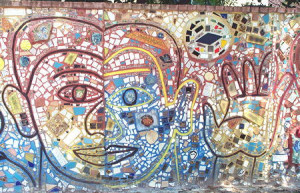I’ve had this small voice in the back of my head that has wondered what it would have been like to be a college professor. I’d want to teach students about HR of course. I envision gathering at the beginning of the semester in my classroom. I’m a bit anxious and the students are wondering what is in store. I’m sure most of them are expecting a syllabus on the first day outlining coursework, readings, projects and exams.
After I get everyone settled down, I ask all of the to put down their tablets or close their laptops. Then I ask them to take their textbooks and put them on the ground. The students look concerned at each other wondering what is going on and a few are probably posting on social media about how odd this new professor is. Then I start . . .
“Hey everyone. Glad you came today to HR 101. To get started, I want you to look around the room and see what you notice.”
After a slight awkward silence, I step in.
“I hope you notice your fellow classmates. You see THEY are what Human Resources is all about. If you remember nothing else this whole semester, remember this.
HR is about people. People. Every. Day.”
I don’t want them to enter the field of HR without this essential truth. I don’t want them to have to be reminded after 3 to 5 years that people matter. I don’t want them to ever think that the policies, procedures, regulations and rules that are components of HR should come before people.
It sounds simplistic, but it’s missing in organizations. Every. Day. There are tons of HR pros who are more content with “how’s” of what they do versus the “who’s” they do it with. Instead of seeing the many employees that you come across as tasks that fulfill your daily to-do list, try recognizing them as a mosaic that ebbs and flows on a regular basis.
 There is a sea of diversity and variety that you get to work with all around you. Not one day goes by that is the same because you’re working with people (every day). You have the opportunity to choose whether that matters or whether it’s a nuisance.
There is a sea of diversity and variety that you get to work with all around you. Not one day goes by that is the same because you’re working with people (every day). You have the opportunity to choose whether that matters or whether it’s a nuisance.
I have to admit that when I started in HR, people weren’t the focus of my efforts. That was an expectation set forth by the company I worked for. We were more concerned with structure, compliance and making sure people fit within rules and systems. There was little room for creativity or innovation. I thought it was because of the size of the company I worked for, but I’ve found this to be more of the norm for how HR operates (and it comfortable doing.)
After I held a position where the owner told me that the ONLY reason I had a job in HR was for his people, I’ve never looked back. Unfortunately, it’s still not the “norm.” We spend more time on the “stuff” of HR and not the people we work with.
This week, join my class of HR 101. Put away the things of your job and put the manuals of rules you’ve developed to the side and look around the room. See what you notice and remember what HR is truly about.
People. Every. Day.

It’s all fun and games until someone cheats on your mid-term.
Just kidding, great post!
LOVE this post Steve! I completely agree and have been shocked that this appreciation of people is not wholeheartedly embraced by every HR professional. Sadly, it isn’t. If nothing else, embracing your people makes sense for business. If your HR and executive suite feels the human capitol in your company are merely replaceable robotic widget makers, guess what, you are going to have turnover, disenfranchised workers, more sick time, less innovation and reduced productivity. We call those things COST. So from a cost/ benefit standpoint, love your people! From the human side, appreciate everyone, they are your talent and … the business is only as terrific as the people in it. Thanks for this post:).
My first real HR job was in the hospitality industry, my manager at the time told me all the employees who work there provide a service to the guests, in HR we provide service to those employees (as a distinction). Today I believe every leader and line worker alike should celebrate and recognize the people around them. Great results happen when the whole organization sees their co-workers as people with wants, goals, and desires and we all work to help each other achieve those things.